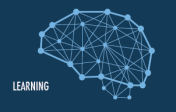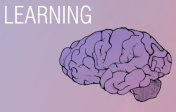Essentials of Learning
Key to Successful Learning
Michael Starbird, Department of Mathematics, uses Inquiry-Based Learning in his classes. The technique emphasizes exposing what students are thinking by placing them in situations where they are actively engaging with what they are learning.
How Can I Do This?
Students come to the university with a wide range of experiences in learning. They need help unlearning techniques that may have served them well in high school, but will not serve them well at UT. If you want them to achieve a reasonably high level of competence within your discipline, then you will need to provide guidance, especially in first-year classes.
Identify the quality and nature of students' prior knowledge.
For better or for worse, students connect their new knowledge and skills to what they already "know." Understanding what your students know and are able to do upon entering your course will help you leverage their accurate knowledge and identify gaps and inaccuracies.
- Have students self-assess their knowledge and skills by creating a checklist of the concepts and skills you expect them to have when they come into your course.
- Give students a concept test either on the first day of class or the start of a unit.
- Highlight connections between new material and related concepts from your own course or previous courses.
- Begin your course with an assignment or concept inventory that covers essential concepts throughout the course.
- Create concept maps where students map out everything they know about a topic.
- Learn More
Provide authentic, real-world tasks set at an appropriate level of challenge.
Creating assignments requiring students to apply what they are learning and to think like a professional within the field affords them the opportunity to see the relevance and value of what they are being asked to learn.
- Case studies bring real-life situations into the classroom but are often simplified to challenge students at a desired level.
- Service-learning engages students in work with actual clients in the community and/or real data.
- Ensure tasks are set at an appropriate-level of challenge is essential so students perceive them as both challenging and achievable.
- Find ways to bring your research into the classroom.
- Learn more
Engage students in frequent practice with feedback.
Whether inside or outside of class, students need opportunities to practice applying the concepts being learned within your course. They also need feedback so that they may identify what they do and don't understand.
- Consider adding more tests and quizzes so that students retrieve information prior to or during each class.
- Find ways to bring learning activities into the classroom, especially when students are developing new skills or applying new knowledge.
- Create opportunities for students to practice weak or missing skills, apply knowledge and skills across a wide range contexts, ask them to identify the salient features within a problem or context, or initially limit the scope of the task until have maste
- Learn More
Encourage students to reflect upon their learning.
Engaging students in reflection across the course of the semester with feedback can generate meaningful instructional "conversations" between teachers and students.
- Ask questions at the beginning of class regarding what students anticipate getting out of a lesson and/or at the end of class about the key points of the lesson. For large classes, use a classroom response system [clickers] to facilitate this process.
- Think-Pair-Share requires students to reflect on their knowledge in order to explain their reasoning to one another. The question you ask students must be difficult enough for students to benefit from conferring with their peers.
- Provide immediate feedback regarding students' confidence in applying their knowledge and skills both before and after completing an assignment. These questions provide a means for students becoming more accurate in evaluating where they need to focus.
- The observation journal is a structured way to engage students in linking course material with their own experiences. For this assignment, students are asked to observe then identify a course concept that supports/relates to this observation.
- The reflection notebook a written record of one's thoughts and questions pertaining to the course and the topics explored [pre-class assignments, in-class, labs, and/or projects.
- Exam Wrappers help students reflect on their study strategies and identify more effective ways to prepare for future exams. They contain questions about preparation strategies, surprises, remaining questions, study goals for the next unit, and so on.
- Learn More
Help students shift their mindset about learning and intelligence.
Failure to a person with fixed mindset casts doubt on one’s “global permanent intelligence,” be avoided (Dweck, 2000, p. 27). A growth mindset person views failure as an indicator of a of skill or inadequate strategy used. This realization spurs the person to modify one’s strategy harder to master the skill. Failure is feedback of a particular moment in time not an indicator of permanent intelligence.
- In Gail Grabner's Intro to Biochemistry class, when a student states that "I don't get it," she adds "Yet." She reminds them that if they persist in the process of learning that they can "get it."
- Praise effort, persistence, and grit rather than "being smart." Share your own experiences with struggling to learn a concept.
- Share effective study strategies early in your course and well in advance of the first exam. Even students with Fixed Mindsets are open to new strategies before they are tested. After failing, folks with a fixed mindset are not as open.
- Have students read an article about how the brain actaully responds to learning.
- Learn More
Why is This Important?
Students' prior knowledge influences how they filter and interpret what they are learning.
If their knowledge is accurate and robust as well as activated at the appropriate time, students will have a strong foundation to build upon for new knowledge. However, if that knowledge contains inaccuracies or is insufficient for the tasks they face, then it will most likely impede new learning.
- Prior knowledge consists of knowledge, skills, beliefs, and attitudes gained in other courses and life experiences.
- The driving question is not whether students can pass the exam, but whether they have gained conceptual understanding and improved how they think and act within your field.
- Replacing misconceptions with accurate knowledge requires opportunities to craft and test predictions. Students also need practice applying that accurate knowledge.
- Learn More
Quizzing students frequently results in better understanding of complex material.
Would you like your students to remember what you teach them longer? Research provides insights as to how you might achieve this goal. For long-term retention, it is also important how and when you revisit that information. With repeated testing or quizzing, students are more likely to keep up with the readings and lectures and ultimately master the material.
- If you currently include tests or quizzes in your course, you might consider adding more so that students retrieve information prior to each class.
- For optimal long-term learning, the amount of time or space between testing sessions should increase over time. This is commonly referred to as the spacing effect.
- Repeated retrieval enhances long-term retention in a laboratory setting.
Students' beliefs about their intelligence impacts whether they persist in a challenging course.
Dweck (2006) followed pre-med students enrolled in a chemistry class. She compared students with a fixed and growth mindset who performed poorly on the first exam. The fixed mindset students found it harder to study for the course and would miss class (self-handicapping behaviors) whereas the growth mindset students tended respond by increasing their effort and finding better study strategies that would work for them. In the end, a significantly higher percentage of growth mindset students who initially did poorly in the class went on to pass the class than their fixed mindset counterparts.
- The “Fixed Mindset” individual views intelligence as a set quantity. The expectation is one where a person capable in a given area to succeed and be near perfect immediately.
- The "Growth Mindset" person views intelligence as malleable and responsive to effort and more effective learning strategies. Challenges are welcomed as part of the learning process even when a risk of failing exists.
- Most of the students entering the class have an interest in chemistry, but students with a fixed mindset maintain an interest only if they do well immediately.
- Growth mindset students continued to show interest in chemistry even when the work was challenging.
Ask "What do students need to know or be able to do in order to complete the assignment/task?"
Experts have acquired so much knowledge, skills, and experience that they have automatized steps and have exceptional pattern recognition skills that assist them during problem solving. These are the very skills that novices need to acquire to perform complex tasks or even identify what information in a problem is relevant.
- Commonly referred to as "Expert Blind Spot" or the "Curse of Knolwedge"
- Decompose the task to identify the key knowledge and skills required for successful completion. Ask a TA or graduate student to help for they may be more aware of the challenges an undergraduate student would face.
- Talk with a colleague about how they approach completing the task. Often folks within the same discipline approach a task differently.
Students have limited cogntive resources and attention when tackling complex tasks.
Cognitive Load refers to the total processing demands imposed upon a person while tackling a given task or set of tasks. If the task exceeds students' cognitive load then they will become frustrated and/or discouraged and lack motivation to engage in the assignment.
- Provide shorter or simplified assignments to provide students with a sense of competence and confidence with skills that will be requred to tackle a major project later in the semester.
- Design assignemts at the appropriate level of challenge: challenging but achievable with reasonable effort..
- Initially limit the scope of a task or explicitly guide students along the lines of thinking to tackle more complex problems or decision-making scenario. As the semester progresses, the support structures are gradually diminished.
Explore More

How Learning Works
Research-based insights from guest speaker Marsha Lovett , Carnegie Mellon University.

Learning Experiences
UT Faculty and Guest Speakers share an influential learning experience that they had while undergraduates.

Practice and Frequent Testing
Would you like your students to remember what you teach them longer? Research provides insights as to how me might achieve this goal.

